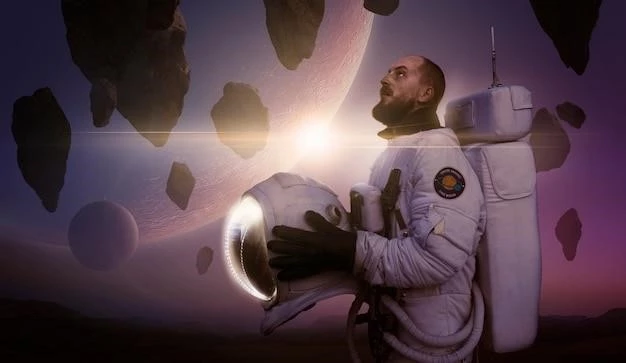For centuries, humanity has gazed at the stars and dreamt of reaching beyond our planet. Today, that dream is closer than ever to becoming a reality. The future of space travel is bright, fueled by technological advancements, burgeoning private industries, and a renewed global interest in exploring the cosmos. This article delves into the exciting possibilities and challenges that await us in the coming decades of space exploration.

The Rise of Commercial Spaceflight
The landscape of space travel is undergoing a fundamental shift. What was once the exclusive domain of government agencies is now witnessing the rise of private companies like SpaceX, Blue Origin, and Virgin Galactic. These pioneers are driving down costs and increasing access to space through reusable rockets, innovative spacecraft design, and ambitious plans for space tourism.
- SpaceX, spearheaded by Elon Musk, aims to make humanity a multi-planetary species with its Starship program, designed for missions to Mars and beyond. Their reusable Falcon 9 and Falcon Heavy rockets have already significantly reduced launch costs.
- Blue Origin, founded by Jeff Bezos, envisions a future where millions live and work in space. Their New Shepard suborbital vehicle offers a glimpse into the future of space tourism, while their New Glenn rocket promises to be a workhorse for orbital missions.
- Virgin Galactic, founded by Richard Branson, focuses on providing suborbital space tourism experiences. Their VSS Unity spaceplane has already carried paying passengers to the edge of space, offering a taste of weightlessness and stunning views of Earth.
Expanding Destinations: The Moon, Mars, and Beyond
While low Earth orbit remains a key area of focus, the future of space travel extends far beyond. The Moon, Mars, and even more distant destinations are becoming increasingly tangible goals.
The Moon: A Stepping Stone to the Stars
NASA’s Artemis program aims to establish a sustainable presence on the Moon by the end of this decade. This ambitious endeavor involves building a lunar gateway, a space station in lunar orbit, and developing technologies for long-duration stays on the lunar surface. The Moon could serve as a testing ground for technologies needed for future missions to Mars and beyond, as well as a potential source of resources.
Mars: The Ultimate Frontier
Mars has captivated human imagination for centuries, and the dream of setting foot on the Red Planet is closer than ever. SpaceX, in particular, has made Martian colonization a cornerstone of its long-term vision. The challenges are immense, from developing the necessary life support systems to overcoming the psychological and physical effects of long-duration space travel. However, the potential rewards, including the discovery of extraterrestrial life and the expansion of humanity’s reach, make Mars an irresistible target.
Beyond Mars: Exploring the Solar System and Beyond
While the Moon and Mars represent the next logical steps, the future of space travel extends even further. Missions to asteroids, the outer planets, and their moons could unlock scientific discoveries and potentially pave the way for resource extraction. In the more distant future, interstellar travel, though currently in the realm of science fiction, may become a reality, allowing us to explore planets around other stars and search for life beyond our solar system.

Technological Advancements: Fueling the Future
The future of space travel hinges on continuous technological innovation. Key areas of development include:
- Advanced Propulsion Systems: To reach distant destinations within reasonable timeframes, we need faster and more efficient propulsion systems. Current research focuses on ion propulsion, nuclear fusion propulsion, and even more exotic concepts like antimatter propulsion.
- Artificial Gravity: Long-duration space travel poses significant health risks due to the effects of microgravity on the human body. Creating artificial gravity environments through rotating spacecraft or other means is crucial for the health and well-being of astronauts on extended missions.
- Closed-Loop Life Support Systems: To enable self-sustaining settlements on other planets, we need to develop closed-loop life support systems that recycle air, water, and waste. These systems will be essential for reducing our reliance on Earth for supplies.
- Space-Based Infrastructure: As space travel becomes more commonplace, we’ll need to develop infrastructure in space, such as fuel depots, communication networks, and even space-based manufacturing facilities. These developments will make space travel more sustainable and cost-effective.
The Challenges and Ethical Considerations
While the future of space travel is brimming with potential, it also presents significant challenges and ethical considerations that must be addressed:
- Cost and Accessibility: Space travel remains incredibly expensive, limiting access to a privileged few. Finding ways to reduce costs and democratize access to space is crucial for ensuring that the benefits of space exploration are shared by all humankind.
- Planetary Protection: As we explore other planets and celestial bodies, we must prioritize planetary protection. This means ensuring that our spacecraft and activities do not contaminate other worlds with Earth-based life and preserving the pristine environments we encounter for scientific study.
- Space Debris: Decades of space exploration have left behind a growing cloud of space debris, posing a significant threat to operational satellites and future missions. Developing effective strategies for mitigating and removing space debris is crucial for ensuring the long-term sustainability of space activities.
- Ethical Considerations of Space Colonization: As we venture further into space and consider the possibility of establishing permanent settlements on other planets, we must grapple with ethical questions about the rights of future generations, the potential impact on indigenous life (if it exists), and the long-term governance of off-world colonies.
Conclusion
The future of space travel is filled with promise and challenges. As we stand on the cusp of a new era of exploration, driven by technological innovation and a spirit of discovery, we must proceed with both audacity and responsibility. By addressing the challenges and ethical considerations, we can ensure that space travel benefits all of humanity and inspires generations to come. The journey ahead will be challenging, but the rewards, including scientific discoveries, technological advancements, and the expansion of our understanding of the universe and our place within it, make it a journey well worth taking.










